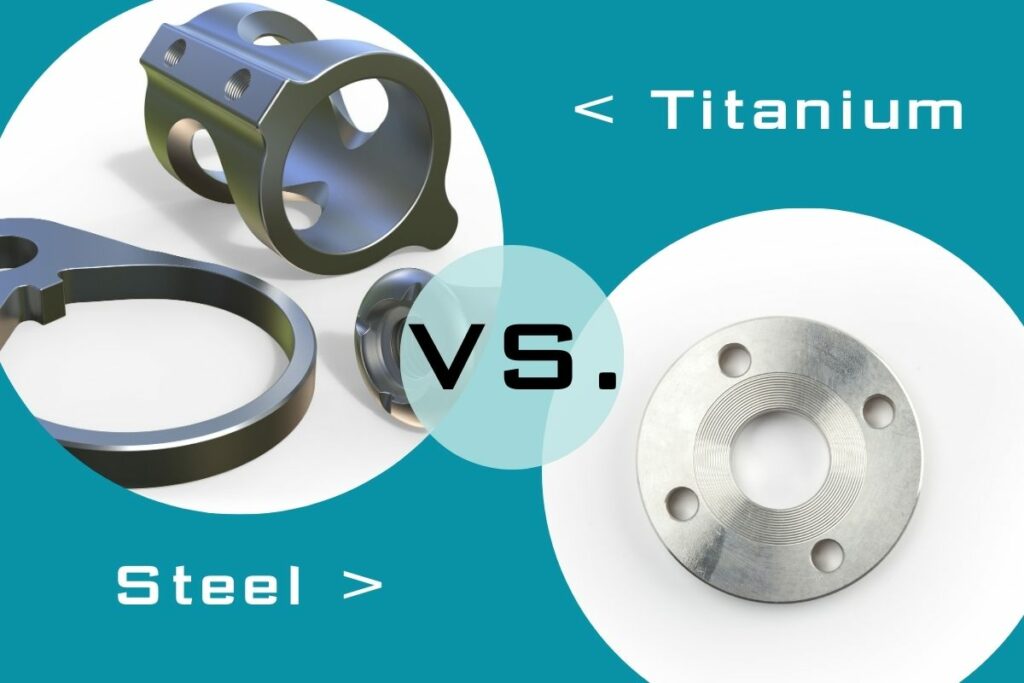
Titanium vs. steel, how much do you know? Steel and titanium are metals that are often used in construction. But what is the difference between them? Which is stronger? Which is better for making parts? And other such questions.
In this blog post, we will take a closer look at titanium vs. steel. And we try to answer some of these questions. Let’s get started!
Titanium vs. Steel: Elementary Composition
Steel
Steel is an iron and carbon alloy with small amounts of other elements such as manganese, chromium, nickel, molybdenum, and vanadium.
Its properties depend on the proportions of the elements present. Generally, Steel with a higher carbon content is harder and stronger but less ductile than steel with lower carbon content.
Machining steel may involve several steps, including drilling, milling, turning, and grinding.
Machining steel can produce high-quality finished parts that are used in various industries, including automotive, aerospace, and construction.
Classification
Here are four different types of steel with different amounts of carbon.
| name | carbon content |
| low-carbon steel | 0.05–0.25% carbon |
| medium-carbon steel | 0.25–0.55% carbon |
| high-carbon steel | 0.55–1.0% carbon |
| ultra-high-carbon steel | >1.0% carbon |
Titanium
Titanium’s atomic number is 22, and its symbol is Ti. The element’s name comes from the Titans of Greek mythology.
In terms of composition, titanium primarily comprises iron and oxygen. However, it also contains smaller amounts of other elements, such as carbon, nitrogen, and magnesium. These impurities give titanium its signature silver-gray color.
Titanium is not found naturally in its pure form. Instead, it must be extracted from minerals such as ilmenite or rutile.
The process of extracting titanium from these minerals is called the Kroll process. Once extracted, titanium can be alloyed with other metals to create strong, lightweight alloys used in various applications.
6 Key Differences Between Titanium And Steel
Hardness
Steel is harder than titanium. Steel is a stronger metal, which can withstand more force before bending or breaking.
However, titanium is not far behind – it is one of the strongest materials used in jewelry making.
So while steel may be slightly harder, both metals are incredibly strong and will stand up to everyday wear and tear.
Weight
One of the critical differences between Steel and titanium is their weight. Steel is much heavier than titanium, making it less ideal for applications where weight is a factor.
However, steel is also much stronger than titanium, making it the preferred choice for applications requiring strength.
Titanium is much more expensive than Steel, making it less ideal for applications where cost is a primary concern.
Elasticity
Steel is more elastic than titanium, meaning it can return to its original shape more easily after deforming.
Titanium is less elastic than steel, meaning it retains its new shape more permanently after being stretched or bent. This difference in elasticity is due to the different atomic structures of the two metals.
Steel comprises carbon atoms arranged in a hexagonal lattice, while titanium atoms are arranged in a body-centered cubic lattice. This difference in atomic structure gives Steel a higher level of elasticity than titanium.
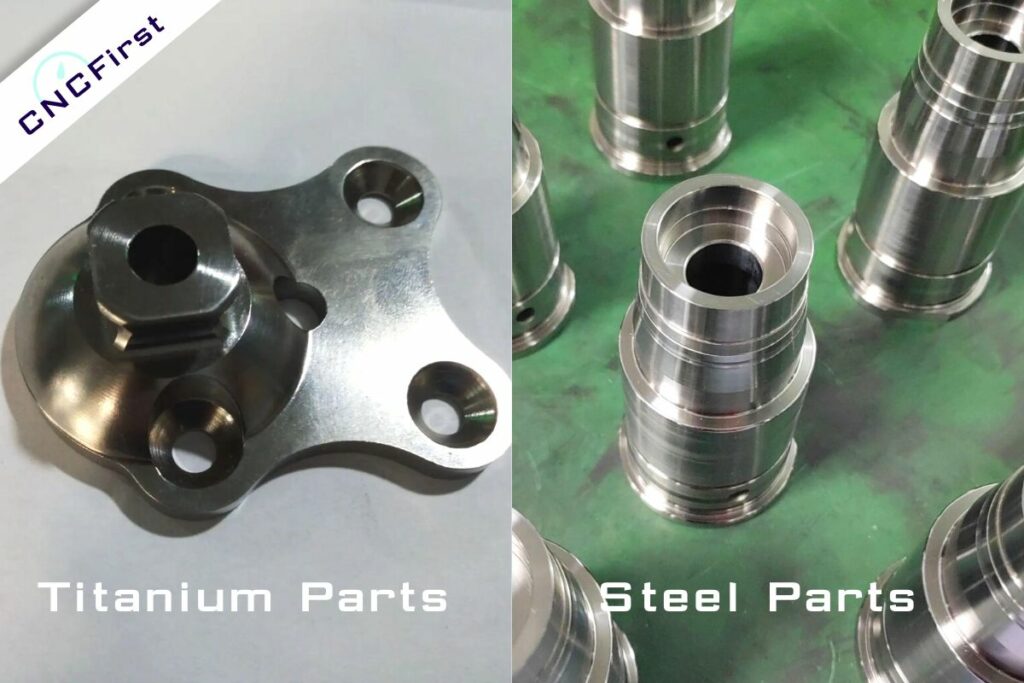
Tensile Yield Strength
Tensile yield strength is an important property to consider when choosing a construction material. The higher the tensile yield strength, the more resistant the material will be to deformation under stress.
Both steel and titanium are widely used in construction due to their high tensile yield strengths. Steel is stronger than titanium, with a tensile yield strength of around 250 MPa compared to 140 MPa for titanium. When tested, titanium’s tensile strength was found to be 63,000 PSI.
Steel can better resist deformation under stress, making it the preferred choice for applications with critical load-bearing capacity.
Corrosion Resistance
In general, titanium is more resistant to corrosion than steel. This is because titanium forms a protective oxide layer on its surface when exposed to oxygen. This oxide layer helps to prevent further corrosion by acting as a barrier.
Steel can also form an oxide layer, but it is not as effective at preventing corrosion as the layer formed by titanium. As a result, titanium is often the preferred choice for applications where corrosion resistance is critical.
Cost
Steel is the more affordable option.
There are some elements to consider when comparing the cost of Steel and titanium.
First, steel is more abundant than titanium, which makes it less expensive. Second, Steel is easier to work with than titanium, reducing fabrication costs.
Finally, titanium is stronger and more corrosion-resistant than Steel, which can add to its overall cost.
When these factors are considered, it is distinct that the cost of Steel and titanium can vary depending on the project.
Titanium VS. Steel: Application
Both steel alloys and titanium are widely used in a variety of applications.
Applications of Steel Parts
Steel is an alloy of the element iron with a small amount of carbon and some other element, and it is prized for its strength and durability.
It is generally used in the construction and manufacturing of bridges, cars, and other heavy machinery.
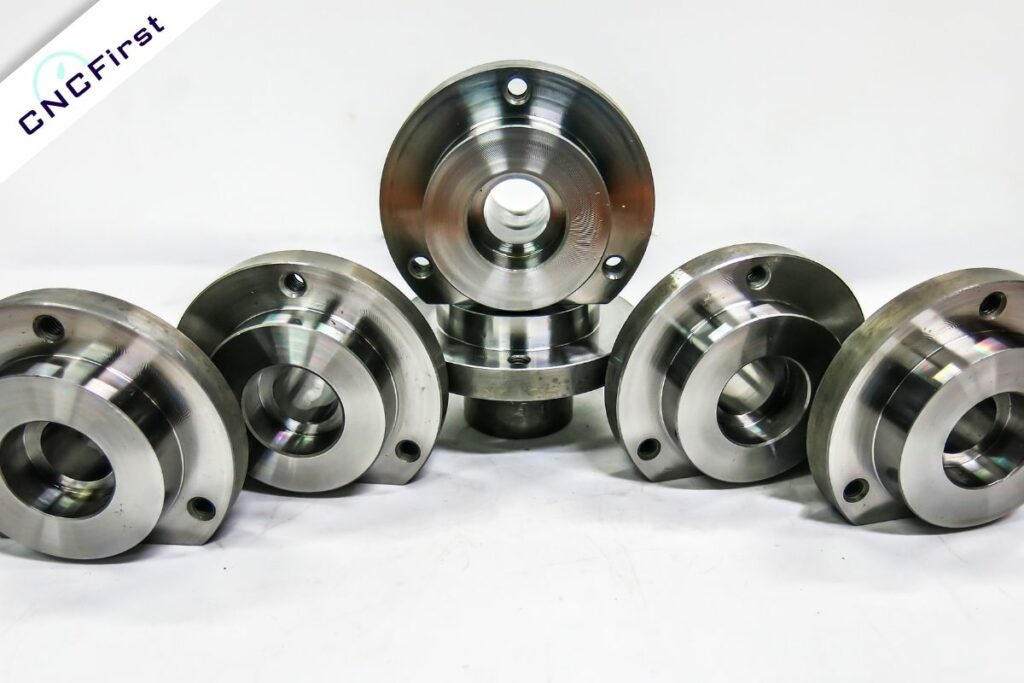
Applications of Titanium Parts
Titanium alloys are used extensively in aircraft (particularly military jets and missiles), spacecraft, maritime vessels (including naval ships), medical devices and implants, sports equipment (including bicycles), jewelry, consumer electronics devices (including laptops), mobile phones, and other applications where low weight or corrosion resistance are required.
Titanium’s low density and high strength allow it to compete with steel in the aerospace industry, making it a popular choice.
As these examples demonstrate, steel and titanium are versatile materials with many uses.
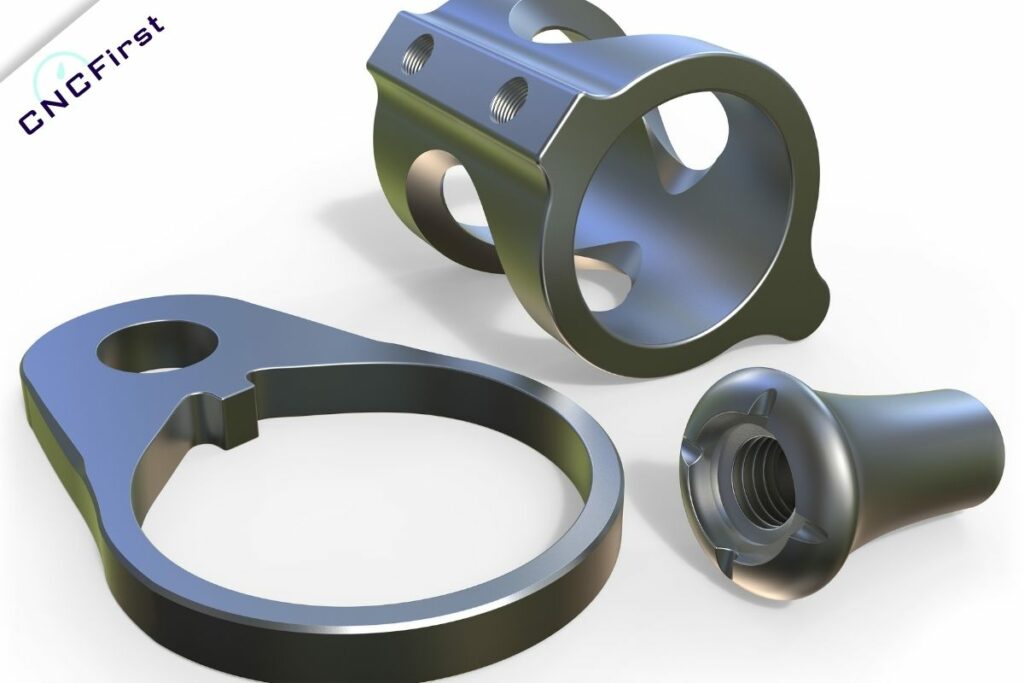
Difference between titanium and stainless steel
Here are some differences between titanium and stainless steel:
Composition: Titanium is a chemical element with the symbol Ti, while stainless steel is an alloy comprising iron, carbon, and other elements such as nickel and chromium.
Weight: Titanium is lighter than stainless steel, which makes it ideal for use in applications where weight is a concern, such as an aircraft.
Strength: While both materials are strong, titanium has a higher strength-to-weight ratio than stainless steel, making it stronger and more durable.
Corrosion resistance: Both materials are highly resistant to corrosion, but titanium is more resistant to corrosion in extreme environments, such as saltwater.
Cost: Titanium is generally more expensive than stainless steel due to its scarcity and difficulty in processing, making it less accessible for some applications.
Color: Titanium has a unique grayish-white color, while stainless steel can come in various colors depending on the surface finish.
Magnetism: Stainless steel can be magnetic or non-magnetic depending on the specific alloy used, while titanium is non-magnetic.
Get High-Quality CNC Parts From CNCfirst.
We specialize in steel and titanium machining. We have a very experienced and skilled team that can handle any project. Our equipment is the most advanced, and we always use the latest technologies. You can be sure we will deliver the highest quality products. We put our customers first place, and we are always looking for ways to improve our services. If you need any steel or titanium processing, please get in touch with us, and we will be happy to help. Thank you for your time!
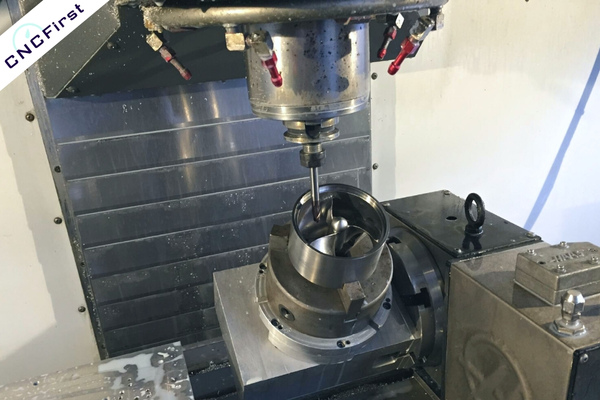
Conclusion
Titanium vs. steel, are two of the most popular materials used in modern-day construction. They both have unique benefits that make them a favorite among builders and homeowners.
Steel is probably the perfect option if you need something strong and durable. However, titanium may be a better choice if you are looking for something lighter-weight and more corrosion-resistant.
Have you chosen metal for your project? Consider it carefully.
FAQ
Then there are answers to some frequently asked questions about Steel and titanium:
What Are the Benefits of Using Steel?
Steel is an affordable material that is strong and durable. Compared to titanium, stainless steel is easy to work with, making it a good choice for projects that require detailed fabrication. Steel is resistant to corrosion, making it ideal for outdoor applications.
What Are the Benefits of Using Titanium?
Compared to steel, titanium is lighter and has a higher strength-to-weight ratio. It is also corrosion-resistant and has a lower thermal conductivity, making it ideal for use in high-temperature environments. Titanium is more expensive than Steel, but its superior properties make it worth the investment for many applications.
Which Material Is Better for My Project?
It depends on your specific needs. If you need a strong, durable material that is easy to work with, Steel may be the best choice. Titanium may be the better option if you need a lightweight material that can withstand high temperatures or corrosive environments.
And if you are solely looking for strength, then steel should be your go-to metal. However, if the project requires strength per unit mass, then you go for titanium. The decision lies in your budget and the specific requirements of your project.
Advantages of Stainless Steel
There are several advantages of using stainless steel in various applications. Here are some of them:
Corrosion resistance: Stainless steel is highly resistant to corrosion, making it an ideal material for use in harsh environments.
Easy to clean: Stainless steel is easy to clean and maintain, making it a popular choice in the food and medical industries where cleanliness is critical.
Durability: Stainless steel is a strong and durable material that can withstand heavy use, impact, and extreme temperatures.
Aesthetic appeal: Stainless steel has a sleek and modern appearance that adds aesthetic value to products made from it.
Recyclable: Stainless steel is 100% recyclable, which makes it an environmentally friendly choice.
Versatile: Stainless steel can be easily formed into different shapes and sizes, making it suitable for various applications, including construction, automotive, and aerospace industries.
Affordable: Stainless steel is relatively affordable compared to other materials with similar properties, making it accessible to a wide range of users.





